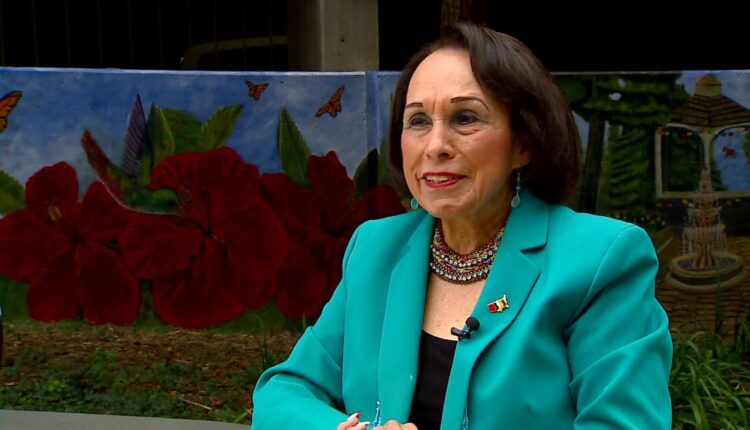
TL/DR –
Lupe Ramos-Montigny, an activist in West Michigan, has been involved in education and activism for decades, beginning her journey as a migrant worker. She became a bilingual teacher in Michigan through the Michigan Migrant Program, focusing on teaching migrant children for over three decades. After retiring, she continued to serve the community by chairing the Committee to Honor Cesar Chavez and educating the public about the Hispanic community’s historical role, also serving on the State Board of Education.
Lupe Ramos-Montigny: A Journey from Migrant Worker to Educator
Lupe Ramos-Montigny, long-time activist in West Michigan, traces her story back to Weslaco, Texas. As a child, she and her family would alternate between Texas and Michigan, working in various fields harvesting cherries and tomatoes. The Old Mission Peninsula, known for its beauty, left a lasting impression on her.
After years of migrant work, Ramos-Montigny had the chance to return to Michigan, this time as a teacher. A Michigan Migrant Program representative visited her university in Texas, seeking bilingual teachers. Remembering her love for the area, Ramos-Montigny decided to return to Michigan.
Back in the Great Lakes State, she became an educator in some of the very same migrant areas she visited during her childhood. Teaching in Grand Rapids Public Schools for three and a half decades, she focused on migrant children. “I always had that feeling of the migrant farm workers and the work that they did, that I had been there, I had worked hard”, she said.
Continuing Activism Post-Retirement
Despite retirement, Ramos-Montigny remained active in the community. She served as the Chair of the Committee to Honor Cesar Chavez, worked with local universities and schools to educate the public about the Hispanic community, and was elected to the State Board of Education.
When asked about the progression of the Hispanic community, Ramos-Montigny stated that, while much progress has been made, there is still work to be done. “We’re part of the fabric, we’re part of the conversation. We’re part of the planning… we’re citizens, we matter, we’re part of this. Now are we there yet? No, no sense of the word but I’m real thankful for the progress we have made,” she concluded.
Read More US News
